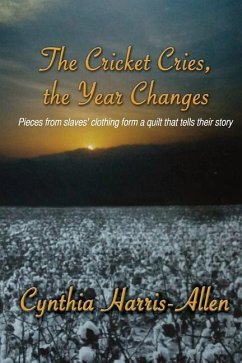Kaffie, an orphaned slave girl, moves into the Big House as a companion to the Master's only daughter. In her teens, she becomes the chief seamstress for the plantation, overseeing the allotment of clothing to both bonded and free peoples. During her lifetime, she saves remnants from the clothing of certain slaves whose struggles greatly impacts the social, cultural and political schema of the Harris-Jones plantation, the largest in Monroe, Georgia. The period is the antebellum South between the years of 1789 to 1860 ensconced in a thoroughly researched-based historical timeline. The storyteller is the quilt. It credentials each life with certainty as its omniscient point of view narrates their storied experiences. It discloses the tiered associations with the owner, the planters, overseers and drivers, and other slaves. The political, social and economic dynamics of that era is the catalyzing backdrop that seals their collective, yet singular, resistance to bondage. Adding to the strife are their own internal conflicts, wherein their varied cultural competencies and traditions operate at cross-purposes upon the Georgia red clay. The Venn diagram of their lives, embedded in this beautiful quilt that becomes the perennial winner of the quilt exhibition circuits throughout the South as Kaffie struggles to free their souls in her own way. That deed has its own consequences.
Hinweis: Dieser Artikel kann nur an eine deutsche Lieferadresse ausgeliefert werden.
Hinweis: Dieser Artikel kann nur an eine deutsche Lieferadresse ausgeliefert werden.







